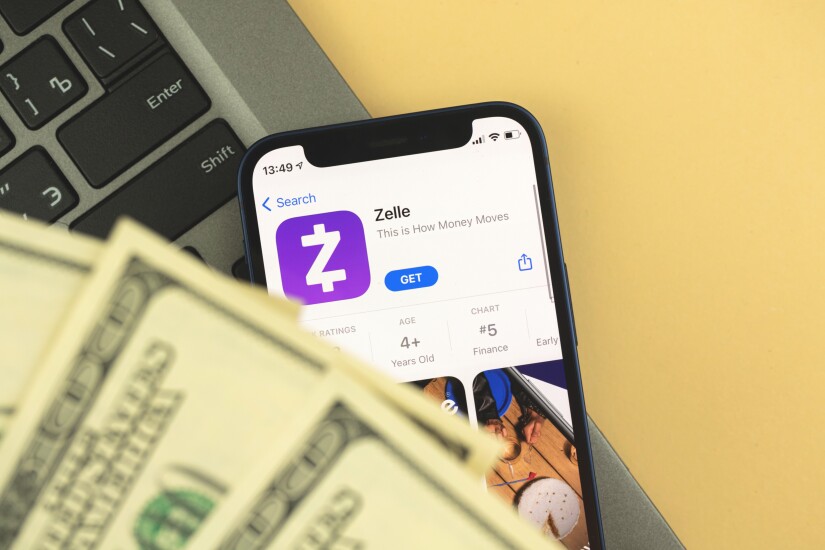In this month's roundup of American Banker's favorite stories: Banks address the implications of Roe v. Wade's overturn, Zelle users file class actions against the P2P firm, the Federal Deposit Insurance Corp. announces plans to hike deposit insurance assessment rates next year and more.

Banks weigh in on the overturning of Roe v. Wade
“I stand in disbelief,” said Laurie Stewart, president and CEO of Sound Community Bank in Seattle. “I’m shocked by this, even though it was predictable given the makeup of the court.”

Warning signs emerge for neobanks: ‘Doomed to not survive’
A recent study by consulting firm Simon Kucher found that of the 400 neobanks in the world, less than 5% are breaking even. U.S. challenger banks Chime and Varo have hit bumps in the road,
And challenger banks, like many other types of fintechs, have seen their equity overvalued. All of this is likely to give neobanks’ backers pause as the economy tightens.

Dimon fires back after shareholders vote down his pay package
“Shame on you,” the JPMorgan Chase CEO told investors at an industry conference in New York City. “I mean, seriously, you should be embarrassed, OK? And do your own homework.”
Dimon’s comments — which he delivered in response to a question about the board of directors’ strategy for CEO succession planning — came two weeks after the majority of JPMorgan shareholders

Why the ‘war for talent’ will last
The $1.7 billion-asset bank, nestled along the California central coast, was caught up in the so-called war for talent. It was competing not just with the state’s shifting landscape of larger banking rivals but also nearby technology behemoths.
The issue has become a headache for the banking industry facing demands for higher wages, looser requirements for office hours and a shrinking supply of workers to choose from, according to a recent survey of more than 100 banking professionals, conducted by Arizent and its fleet of publications, including American Banker.

Raising Zelle: Furious P2P users take banks to court
The lawsuits, which involve a growing number of institutions from Bank of America to Navy Federal Credit Union, underscore the rising
Zelle is advertised as a speedy P2P service for friends and family, and is primarily accessed through a bank or credit union's website or mobile app. Typical Zelle P2P payments are treated like cash — once the money's gone, it's gone, and it's up to the consumer to make sure the funds went to the right place.

What the end of ‘Chevron deference’ could mean for banks
Much of American administrative law has rested upon a legal principle known as “

What’s in a name? A credit union's LGBTQ program finds a wider audience
Michigan State University Federal Credit Union in East Lansing, Michigan, is nearing the finish line on development of a feature within its digital banking platforms and card offerings that will allow members to set a preferred name and set of pronouns. The program, which is expected to go live before the end of the third quarter, is like many others that allow credit card users, for example, to put their preferred name on the card.

FDIC plans to raise assessments in face of deposit glut
At a board meeting Tuesday, the FDIC voted to issue a notice of proposed rulemaking that would raise deposit insurance assessment rates by 2 basis points for all insured depository institutions.
Assessments vary based on a bank’s size, condition and other factors. The proposal would have only a “modest” impact on the industry’s profits, about an average estimated annual reduction of less than 2%, FDIC acting Chairman Martin Gruenberg said at the meeting.

Citizens says buy now/pay later lending is best when it stays in its lane
"We've logically stayed away from some of those categories. It's a risk for consumers," said Eric Schuppenhauer, head of consumer lending and national banking for Citizens. "If BNPL goes to where it's just a bunch of layered purchases on top of each other, it's looking like the types of debt that people were using BNPL to avoid in the first place."
Fintech-led BNPL is suffering from both regulatory pressure from a

Will regulators’ warnings chill lenders’ use of AI?
None of this is new: Fair-lending laws and credit reporting laws have been on the books for 50 years, and there was no reason to think they wouldn’t apply to newer lending software. But in the way that the CFPB and all the national bank regulators have been





